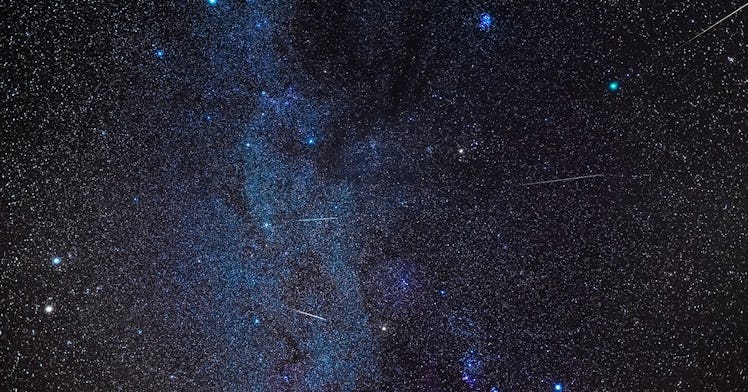One of the Final Meteor Showers of the Year Is About to Hit the Sky
The Geminid Meteor Shower peaks next week. Here's how to make sure you don't miss it.

It’s been a wonderfully wacky year of sky events, but now, one of the last meteor showers of the year will be flying by next week. The Geminid Meteor Shower will be making its annual showing, giving you a chance to see a whole bunch of meteors before the end of the year. Here is everything you need to know to maximize your viewing experience.
What Is the Geminid Meteor Shower?
NASA has described it as “one of the best and most reliable annual meteor showers” and it’s not hard to see why. The Geminid Meteor Shower may not be as showy as some of the others but it is extremely consistent, showing up around mid-December every year, with approximately 100-120 meteors per hour appearing during its peak. And as the name suggests, most of the meteors will appear in the area around the Gemini constellation.
When Is It Happening?
The peak of the Geminid Meteor Shower will be December 13-14, with the most meteors expected to be visible in the early hours of the 14th. According to the experts, the best time to see the most meteors is around 2 a.m. If that’s past your bedtime, you can go out earlier on the night of the 13th and you still may see your fair share of meteors. But if you really want to see as many meteors as possible, you are going to want to stay up a bit later.
How Can I See It?
All you really need is to find a place where light pollution won’t hinder your view of the sky. No tools or equipment is necessary, as the meteors will be visible to the naked eye. Earth Sky does recommend that you spend at least an hour watching, as it typically takes about 20 minutes for your eyes to fully adjust to the dark sky.
And, if you’ve got kids who maybe can’t stay up until 2 a.m. watching meteors shoot across the sky, feel free to check out “Earthgrazers,” the publication reports. In the early evening, you may be able to catch — if you’re patient — the slow-moving meteors while the sun is still up. Otherwise, get ready to stay up late.